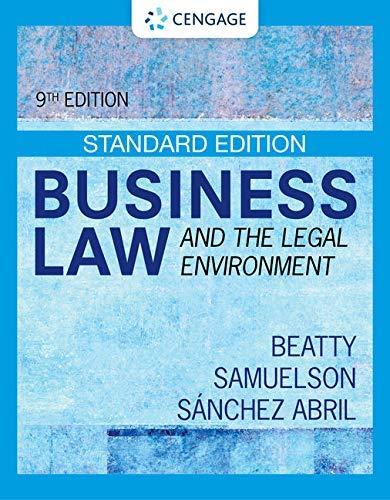Question
Can you please comment on what I did well and what I could have done differently in the following response I wrote? Here is the
Can you please comment on what I did well and what I could have done differently in the following response I wrote? Here is the question I had to respond to:What is substantive due process? What purpose does substantive due process serve to an individual involved in the judicial system? Why does the judicial system provide for substantive due process? And here is my response: One of the elements of the Fifth and Fourteenth Amendments' due process clauses is substantive due process. It relates to the fundamental principles of the law and demands that the laws themselves be, at their core, just (Harr et al., 2017). It "operates to protect those characteristics of life, liberty, or property not specifically mentioned in the Constitution," according to Harr et al. (2017) (p. 87). Put differently, it safeguards substantive rights that aren't expressly stated in the Constitution. The rights to privacy, interstate and international travel, voting rights, freedom of expression, and freedom of association are a few examples of these rights. This doctrine states that if the government wants to enact and enforce laws that infringe on an individual's rights, it must do so under stringent judicial scrutiny (Zhang, 2019). Because the Supreme Court can overturn laws restricting rights not expressly enumerated in the Constitution, this protects those involved in the judicial system against government infringement. Since judicial review is one of the courts' powers and substantive due process is a constitutional right, the legal system ensures it.
Step by Step Solution
There are 3 Steps involved in it
Step: 1

Get Instant Access to Expert-Tailored Solutions
See step-by-step solutions with expert insights and AI powered tools for academic success
Step: 2

Step: 3

Ace Your Homework with AI
Get the answers you need in no time with our AI-driven, step-by-step assistance
Get Started


